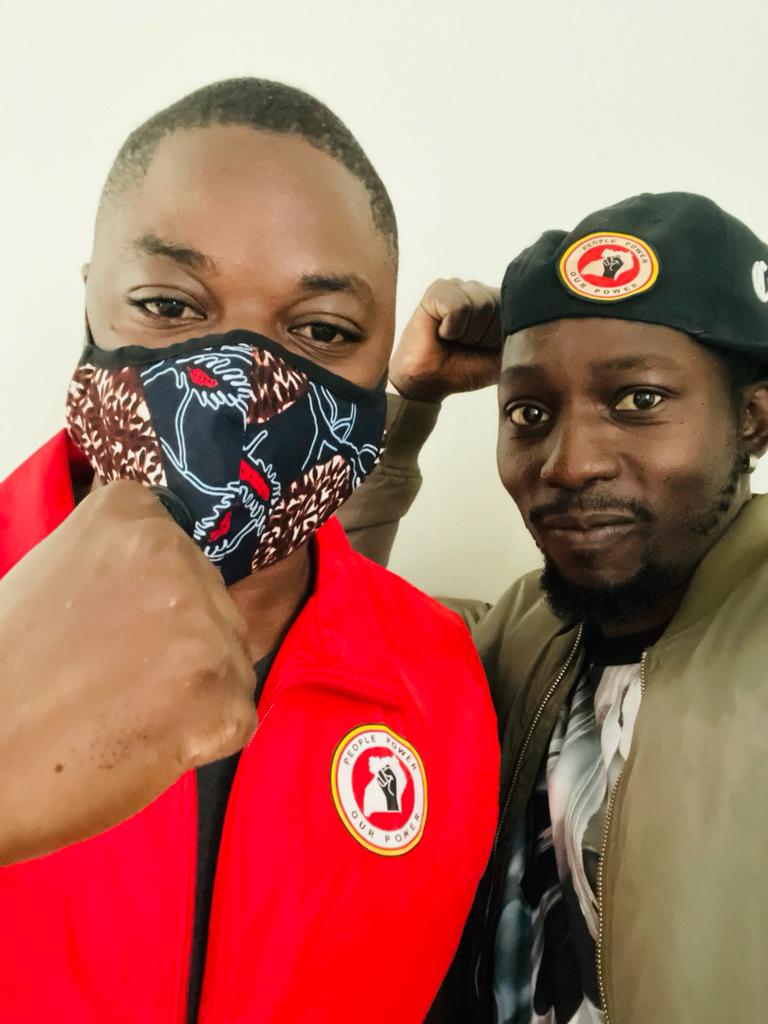The Uganda Police force has this afternoon confirmed the arrest of four people from downtown Kampala following the crackdown on red berets.
This operation that saw several printing shops along Nasser and Nkurumah road raised over allegation publishing illegal materials which are a preserve of the Uganda People’s Defense Forces (UPDF).
According to Luke Oweyesigire, the Kampala Metropolitan spokesperson, the operation came in handy as it would give a stop to sale publication army attires and equipment’s that were flooding the market grasshoppers.
Among the arrested is popular activist Ssali Dennis who doubles as a close relative to Makindye East lawmaker Hon. Allan Ssewanyana, KCCA councilor Kiiza Hakim, Ssemanda Timothy among others who were all picked from their workshop along Nkuruma Road as they printed pro Bobi Wine Calendars and T-shirts.

It should be noted that this arrest comes few months after the Uganda government designated the red beret as official military clothing.
While announcing this, in September, army spokesman Richard Karemire said that members of the public who wear it would end up in jail, a move that essentially bans the uniform of leading opposition leader Bobi Wine and his supporters.
Bobi Wine, a pop star turned politician who has announced he is running for president against longtime leader Yoweri Museveni in 2021, has made the red beret his signature, calling it a “symbol of resistance”.
However the beret, also worn by some soldiers, was included in Uganda’s first-ever gazette of all military clothing, which states that any member of the public found in possession of the items “is liable on conviction to imprisonment for life”, under section 160 of the 2005 UPDF Act.
“The dress code for the UPDF (Uganda People’s Defence Force) has been gazetted. The action was endorsed by the top organs of the army which also commended the dress committee for concluding the task assigned to it years back,” army spokesman Richard Karemire said in a statement on Monday.
“It manifests the commitment to define identity and outlook of a professional army as well as adhering to the EAC (East African Community) protocols,” he added.
